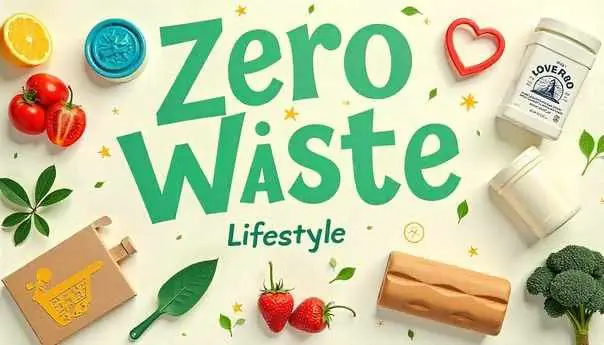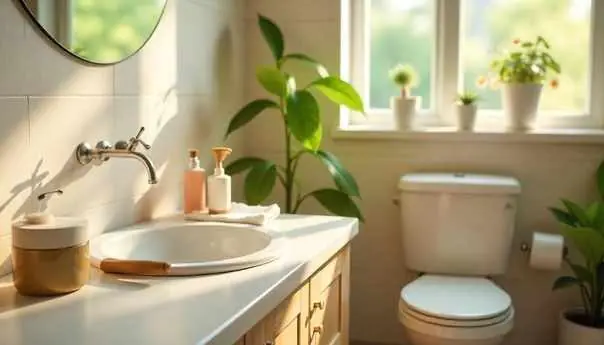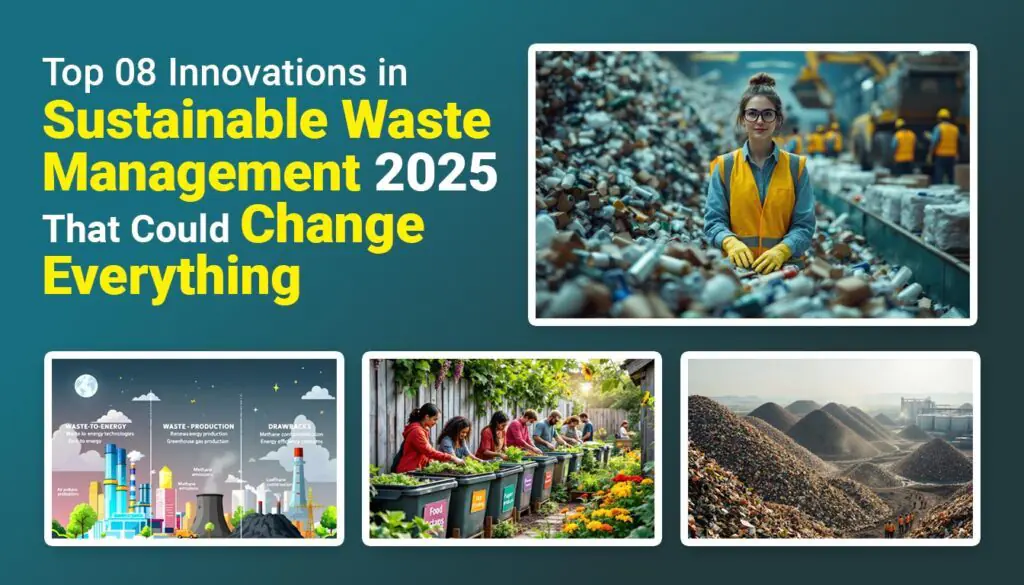Understanding the Zero Waste Philosophy
The zero waste philosophy is an approach aimed at minimizing waste generation and maximizing resource efficiency. This movement encourages individuals and communities to rethink their consumption habits and actively participate in reducing the amount of waste sent to landfills. By adopting a zero waste lifestyle, one not only supports environmental sustainability but also fosters a more mindful and conscious way of living.

At the core of the zero waste movement lies the principle of reducing, reusing, and recycling. This hierarchy emphasizes the importance of reducing consumption first and foremost, thereby preventing waste from being produced in the first place. By thoughtfully considering what we purchase and rejecting unnecessary items, we can significantly cut our trash in half and you can too! Reusing items prolongs their life cycle, thereby minimizing the need for new products and limiting the resources consumed in manufacturing. Finally, recycling is the last resort when items can no longer be reused; it helps divert waste from landfills, transforming materials into new products.
Consumer habits play a significant role in waste production. The way we shop, consume, and dispose of products directly impacts the environment. By adopting a zero waste lifestyle, individuals can challenge the status quo of consumerism and its associated waste. This includes making conscious choices, such as opting for bulk purchases, using reusable bags, and supporting businesses that prioritize sustainability. The cumulative effect of these small changes can lead to substantial reductions in waste, demonstrating that every action counts toward a greener future.
Moreover, the benefits of embracing a zero waste philosophy extend beyond environmental impacts. It often leads to financial savings, as reducing consumption typically results in lower expenses. Additionally, living with less encourages a shift in mindset, fostering appreciation for what we already possess. Ultimately, the zero waste movement promotes a sustainable approach to living that reconciles personal well-being with environmental stewardship.
Practical Hacks for Reducing Household Waste
Adopting a zero waste lifestyle can seem daunting, but incorporating practical hacks into your daily routine can significantly cut down household waste. One of the simplest ways to start is by switching to reusable products. For instance, using stainless steel or glass containers for food storage not only minimizes plastic waste but also keeps food fresher for longer. By gradually replacing plastic wrap with beeswax wraps or silicone lids, you can reduce your reliance on single-use plastics, which contribute significantly to overall trash generation.
Optimizing shopping habits is another crucial aspect of minimizing waste. Before heading to the grocery store, planning meals and creating a shopping list can prevent impulse purchases that often lead to food waste. Consider buying in bulk where possible, as this often reduces packaging waste and can also lead to cost savings. Bringing your own reusable bags, jars, or containers for bulk items is an easy zero waste lifestyle hack that many people can implement. Furthermore, shopping at local farmers’ markets not only supports local businesses but also often means purchasing items with minimal packaging.
Also Read Trending Post
- 20 High Protein Meal Prep Ideas for Weight Loss, Muscle Gain & Busy Lifestyles (2025 Guide)
- Healthy and Sustainable Rooftop Gardening Guide for Beginners: Simple and Effective Methods
- Eco-Friendly Meal Prep Ideas: 10 Essential Tips for Healthy and Sustainable Eating
- Microplastics: Invisible Danger in Our Food, Water, and Environment
- Top 25 Plant-Based Protein Sources Chart: Your Ultimate Visual Guide for a Healthier Diet!
Another area that commonly generates waste is cleaning supplies. Instead of purchasing multiple single-use cleaning products, opt for multi-purpose cleaners that can be made at home using simple ingredients like vinegar and baking soda. Not only does this approach cut down on plastic waste, but it also promotes a healthier living environment by avoiding chemical-laden commercial products. Similarly, personal care routines can be modified—using shampoo bars instead of bottled shampoos or cloths instead of disposable cotton rounds can drastically reduce waste.

Implementing these zero waste lifestyle hacks in your household can lead to a remarkable decrease in your trash output. By making small, manageable changes to your routine as outlined above, you can contribute to a more sustainable future while maintaining your quality of life.
Creative Upcycling Ideas to Repurpose Waste
Embracing a zero waste lifestyle is not only about reducing waste but also about creativity and resourcefulness. One of the most impactful ways to minimize trash is through upcycling—transforming discarded items into new, functional or decorative products. This approach not only prolongs the lifespan of materials but also supports a more sustainable way of living. Below are some inspiring examples and easy do-it-yourself (DIY) projects that you can easily try at home.
Glass jars are one of the most versatile materials for upcycling. Rather than tossing out empty jars, consider using them as storage containers for pantry staples, crafting supplies, or even as decorative vases. A quick DIY project involves painting the jars or wrapping them with twine for a rustic look. These personalized containers can serve as chic home decor pieces while also helping to reduce waste.
Fabric scraps from old clothing or home textiles can be transformed into a variety of useful items. For instance, turning fabric remnants into reusable shopping bags not only cuts down on plastic waste but also allows individuals to showcase their unique style. Sewing a few simple stitches can create beautifully unique bags that are both functional and environmentally friendly. Additionally, fabric scraps can be repurposed into patchwork quilts or decorative cushions, turning waste into art.
Another common item that often ends up in landfills is cardboard. This material can be transformed into creative storage solutions, such as organizers for your office or children’s toys. A simple project could involve stacking and gluing together pieces of cardboard to create a personalized shelf or even a vertical garden for small plants. These upcycling ideas not only help in minimizing waste but also foster an artistic approach to home improvement.
In conclusion, by implementing these creative upcycling ideas, you can significantly contribute to a zero waste lifestyle. Exploring the limitless possibilities of repurposing unwanted materials not only cuts down on trash but also encourages imaginative thinking and the joy of crafting.

Building a Community Around Zero Waste Living
Embracing a zero waste lifestyle can be significantly enhanced through community involvement. As individuals commit to reducing their ecological footprint, the support from like-minded individuals provides motivation and accountability. Building a network surrounding zero waste initiatives not only enriches one’s personal experience but cultivates a culture of sustainability that resonates throughout the community. By connecting with local groups focused on sustainable practices, such as community gardens, active clean-up events, or waste reduction workshops, individuals can share experiences and strategies for success.
Educational resources abound for those seeking to foster community engagement in the pursuit of a zero waste lifestyle. Many cities host local events, such as swap meets, where individuals can trade items rather than discarding them, reinforcing the principles of recycling and repurposing. Furthermore, joining forums or social media groups dedicated to zero waste lifestyle hacks can introduce new ideas and inspire actionable change. Engaging with seasoned practitioners through these channels allows individuals to access invaluable insights, which can transform personal habits and encourage others to adopt similar practices.
Additionally, individuals can take initiative by organizing workshops or seminars on the importance of sustainable living and sharing zero waste tips with neighbors and friends. Hosting potlucks with a focus on zero waste principles encourages others to contribute meals using minimal, sustainable packaging. The excitement generated through collective action not only draws attention to waste reduction efforts but also inspires community members to become champions of sustainability. By encouraging discussions around reducing waste and sharing practical advice, readers can have a profound influence. In conclusion, fostering a collaborative environment dedicated to zero waste can lead to significant progress, proving that collective efforts cultivate a lasting impact on environmental sustainability.
Conclusion
Living a zero-waste lifestyle is more than just reducing your trash—it’s about reshaping how we interact with the world around us. By implementing thoughtful practices like rethinking consumption, embracing reusable alternatives, composting organic waste, and supporting sustainable brands, you’re not only cutting your waste in half but also contributing to a larger, collective effort to heal our planet.
The journey to zero waste is deeply personal, rooted in mindfulness and intentionality. It teaches us to value resources, cherish simplicity, and recognize that small, consistent actions lead to profound change. Along the way, you may find unexpected benefits—saving money, cultivating creativity, and fostering a sense of purpose in knowing you’re making a difference.
Every effort matters, no matter how small it may seem. Whether you’re just starting or deepening your commitment, know that your choices inspire others. Together, we can create a ripple effect that transforms communities and protects the Earth for generations to come.
Let this be your invitation to take the next step. Share your progress, learn from others, and explore the endless possibilities of living waste-free. Start today—because every action counts, and the future depends on what we do now.
FAQ
1. What is a zero waste lifestyle?
A zero waste lifestyle focuses on minimizing waste by reducing consumption, reusing resources, recycling responsibly, and composting organic materials. The goal is to send as little as possible to landfills and to live more sustainably.
2. Do I need to go completely zero waste to make a difference?
Not at all! Every small step toward reducing waste counts. Whether it’s swapping single use items for reusables or composting food scraps, incremental changes can have a significant impact.
3. What are some easy zero waste hacks for beginners?
- Carry a reusable water bottle and coffee cup.
- Say no to plastic straws and bags bring your own.
- Start composting your food scraps.
- Buy in bulk to reduce packaging.
- Repair and repurpose items instead of throwing them away.
4. Is a zero waste lifestyle expensive?
It doesn’t have to be! In many cases, it can save you money. Buying reusable items like cloth napkins or stainless steel water bottles is an upfront investment but reduces long term costs. Additionally, making your own cleaning supplies and buying secondhand are great ways to save money while reducing waste.
5. How do I manage zero waste if I live in a city or small space?
Urban or small space living can still support zero waste principles:
- Use vertical or balcony gardening for composting and growing herbs.
- Take advantage of local recycling programs.
- Shop at nearby farmers’ markets or bulk stores.
- Opt for digital receipts and paperless billing to reduce clutter.
6. What’s the biggest challenge in going zero waste?
The most common challenge is breaking old habits and finding sustainable alternatives that fit your lifestyle. Start small and focus on one area at a time to avoid feeling overwhelmed.
7. How can I involve my family or roommates?
- Share the benefits of a zero waste lifestyle.
- Lead by example with easy, visible swaps.
- Make it fun by hosting a DIY night for homemade products like candles or cleaning supplies.
- Encourage open discussions about sustainability goals.
8. What should I do with items I already own that aren’t zero waste?
The zero waste mindset encourages using what you already have. Instead of discarding non-sustainable items, use them up and replace them with eco friendly alternatives when they wear out.
9. Are zero waste products better for the environment?
Yes, but the key is to prioritize durability and necessity. Products made from sustainable materials and designed for long-term use reduce resource consumption and waste generation.
10. How can I stay motivated on my zero waste journey?
Celebrate small wins and remind yourself of the bigger picture: protecting the environment for future generations. Engage with online communities, track your progress, and share your journey to inspire and be inspired by others.










